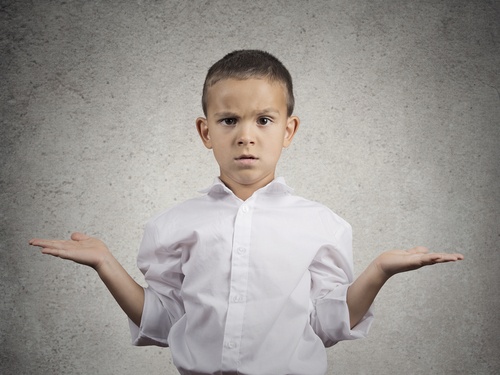But, WHYY? Things to Say Instead of "Because I Said So"
Preschool children learn a simple idea very early: under the control of benign dictators, they are powerless. Though they lack power over nearly every aspect of their lives, they can stop the dictators in their tracks with one whine: Whyyyyy? The goal of positive parenting is to answer that question (and its 117 other iterations every day) with authority and love.
 Is “Because I Said So” Always Wrong?
Is “Because I Said So” Always Wrong?
Parenting expert John Rosemond says parents should use “Because I said so,” as a means to assert authority over the child. Adults have survived to whatever age by learning life’s hard lessons. Use the line, sure, but do not forego positive parenting:
“Because I said so as a grown-up who loves you. I am trying to protect you from things you don’t understand.”
Inquisitive Why?
“Why?” is open-ended. It allows the child a cascade of questions to keep conversation going. The National Center for Fathering points out that kids often use “Why?” to nag, but sometimes use it when they need reassurance. Try, “I’m trying to do what’s best for you, and you need to trust me on this.”
Manners
Dr. Burton L. White once said, “To get along in our society, a child needs to know that while they are special, they are no more special than anyone else.” Positive parenting means the boundary-testing “Whyy?” can be answered by reminding your child her or his rights do not trump others’ rights:
“You cannot scream in the store because other people want to shop in peace and quiet. I removed you from the store because of your behavior. I want you with me because I love you, but nobody wants the screaming.”
Angry Why!?!
As a parent you know when your child is sucking you into a power struggle. The “Whyy?” is thrown out to desperately counter your “No.” Erin Devine, a board-certified behavior analyst in Massachusetts, says power struggles only happen when adults allow them. Devine recommends that adults not coerce children but instead anticipate the challenge. State the larger goal as fact and offer a choice about a smaller issue:
“We’ll be going to your older sister’s dance class where you will need to sit quietly for 30 minutes. Please pick out one book and two quiet toys to take with us.”
What answers have you given to your child's “Whyy?” Kids Konnect would like to know! Please comment below.
